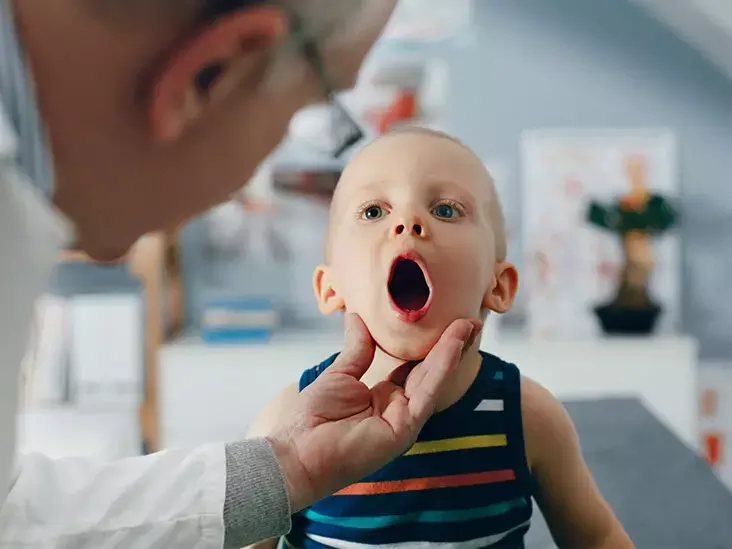- Home
- Medical news & Guidelines
- Anesthesiology
- Cardiology and CTVS
- Critical Care
- Dentistry
- Dermatology
- Diabetes and Endocrinology
- ENT
- Gastroenterology
- Medicine
- Nephrology
- Neurology
- Obstretics-Gynaecology
- Oncology
- Ophthalmology
- Orthopaedics
- Pediatrics-Neonatology
- Psychiatry
- Pulmonology
- Radiology
- Surgery
- Urology
- Laboratory Medicine
- Diet
- Nursing
- Paramedical
- Physiotherapy
- Health news
- Fact Check
- Bone Health Fact Check
- Brain Health Fact Check
- Cancer Related Fact Check
- Child Care Fact Check
- Dental and oral health fact check
- Diabetes and metabolic health fact check
- Diet and Nutrition Fact Check
- Eye and ENT Care Fact Check
- Fitness fact check
- Gut health fact check
- Heart health fact check
- Kidney health fact check
- Medical education fact check
- Men's health fact check
- Respiratory fact check
- Skin and hair care fact check
- Vaccine and Immunization fact check
- Women's health fact check
- AYUSH
- State News
- Andaman and Nicobar Islands
- Andhra Pradesh
- Arunachal Pradesh
- Assam
- Bihar
- Chandigarh
- Chattisgarh
- Dadra and Nagar Haveli
- Daman and Diu
- Delhi
- Goa
- Gujarat
- Haryana
- Himachal Pradesh
- Jammu & Kashmir
- Jharkhand
- Karnataka
- Kerala
- Ladakh
- Lakshadweep
- Madhya Pradesh
- Maharashtra
- Manipur
- Meghalaya
- Mizoram
- Nagaland
- Odisha
- Puducherry
- Punjab
- Rajasthan
- Sikkim
- Tamil Nadu
- Telangana
- Tripura
- Uttar Pradesh
- Uttrakhand
- West Bengal
- Medical Education
- Industry
Gastroesophageal Reflux increases morbidity After Tonsillectomy in Kids: Study

Gastroesophageal reflux (GER) has been identified as a risk factor for complications following pediatric tonsillectomy. In a study, researchers have reported that children with GER experience poorer outcomes after tonsillectomy. The study findings were published in The Laryngoscope on July 18, 2020.
A growing amount of evidence has correlated poorer post-tonsillectomy outcomes among children diagnosed with reflux. Specifically, reflux has been shown to predict worse pain and more frequent bleeding, early airway complications and increased length of hospitalization.
However, these studies have been limited by the lack of prospective design and small sample size. Therefore, researchers of the Perelman School of Medicine at the University of Pennsylvania, USA, conducted a study to examine outcomes after tonsillectomy among children with GER using a nationwide database. They also analysed the duration of hospitalization and total charges after admission.
It was a cross‐sectional review of the Healthcare Cost and Utilization Project (HCUP) Kids' Inpatient Databases (KID) from 2012 and 2016. Researchers assessed the database for bleeding rates, length of stay (reported in days), respiratory complications, and total hospitalization charges. They identified 21,232 children who had a tonsillectomy with or without adenoidectomy, with 1,683 (7.9%) diagnosed with GER.
Key findings of the study were:
- Upon evaluation, the researchers noted that the rate of primary haemorrhage was not statistically different between groups.
- They found that the patients with reflux were more likely to have respiratory complications, aspiration pneumonitis, and hypoxemia during their hospital course.
- They also found frequent noninvasive ventilation and reintubation in this population.
- They further noticed that children with reflux had a longer duration of postoperative admission (3.8 vs 2.3 days) and higher total hospital charges ($47,129 vs $27,584).
- Upon multivariable regression analysis, they observed that reflux remained a statistically significant indicator of aspiration pneumonitis, hypoxemia, invasive and non‐invasive ventilation, as well as the length of admission.
The authors concluded, "Children with GER were significantly more likely to experience inpatient complications following tonsillectomy. Further, the length of admission was higher compared to children without reflux. These results suggest that children with GER experience poorer outcomes after tonsillectomy and highlight the role for appropriate preoperative counselling and planning in this patient population".
For further information:
Medical Dialogues Bureau consists of a team of passionate medical/scientific writers, led by doctors and healthcare researchers. Our team efforts to bring you updated and timely news about the important happenings of the medical and healthcare sector. Our editorial team can be reached at editorial@medicaldialogues.in.
Dr Kamal Kant Kohli-MBBS, DTCD- a chest specialist with more than 30 years of practice and a flair for writing clinical articles, Dr Kamal Kant Kohli joined Medical Dialogues as a Chief Editor of Medical News. Besides writing articles, as an editor, he proofreads and verifies all the medical content published on Medical Dialogues including those coming from journals, studies,medical conferences,guidelines etc. Email: drkohli@medicaldialogues.in. Contact no. 011-43720751


